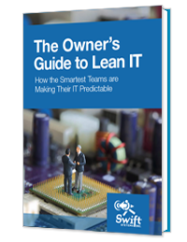
6 Cyber Security Tips for Medical Offices
There are more digital personal health data in existence than ever before. And health data, in general, is less secure than ever before – witness the unprecedented number of cyber attacks and the increase in compromised health data over the past year.
All is not lost, though; part of the reason for the unprecedented data breaches is simple negligence.
That’s discouraging, on the one hand. But on the other, it means that if your medical office gets ahead of the curve when it comes to cyber security, you’ll be much better protected against cyber threats. And you’ll be less likely to be victimized by a hack or data breach.
Are you ahead of the curve? Is your medical office secure?
Let’s take a look at six tips for cyber security for medical offices so that you can answer in the affirmative.
1. Take HIPAA Seriously
To start getting ahead of the curve, start taking HIPAA seriously.
Too many medical offices simply don’t give HIPAA the consideration it requires. Sure, everyone pays lip service to compliance – but more often than not, there’s an underlying perception that being HIPAA compliant really isn’t all that urgent. After all, most doctors have not yet been fined for any violations.
Most people feel that HIPAA compliance only truly matters for major health players. After all, small-to-medium-sized practices don’t access as much data, so there’s less appeal for hackers, right? Or, practices believe that data breaches only happen to offices that blatantly violate regulations – so, as long as you’re not passing out health data on the street, you’re probably fine.
Unfortunately, these perceptions are wrong. And, more than that, they’re dangerous.
HIPAA compliance matters more than ever for two reasons: the risk of health data breaches is steadily increasing, and the fines associated with data breaches are increasing, too.
You’re now more likely to be hacked than you were a few years ago, and you’ll now pay more when it happens.
And, it’s not just the biggest health companies that are at risk. Medical offices have health data that is, by nature, valuable; it can be used for blackmail, fraudulent medical claims or prescriptions, or identity theft. On top of that, it’s often much easier to steal data from a medium-sized medical office than it is to hack the big companies, because, there tend to be fewer security measures in place.
The end result is that small- and mid-sized medical offices are appealing targets for hackers.
Strong security starts with the acknowledgment that strong security is necessary. So, make sure that your medical office is taking HIPAA seriously.
2. Make Passwords Strong
Once you’ve acknowledged the importance of HIPAA compliance (and of cyber security in general), start taking practical steps to improve. One simple step: increase your password strength.
If your password is your favorite sports team, your family pet, or, really, anything associated with you, you’ve got a problem; a malicious actor can guess it easily. Your password should be a random assortment of letters, numbers, and special characters, and it should be unique to the system it grants access to (don’t duplicate your Facebook password on your office software). There are many tips you can use to create secure passwords you will remember.
And, the same goes for everyone in your medical office. A system is only as secure as its weakest link. If you lock every door but one, there’s still an easy way in. If one of your users is logging in with a simple password, they’ve left the door unlocked.
To prevent that, implement a required standard of password strength, so that no office users can compromise health data with a simple password. And to stop attackers who try to guess your passwords, configure your systems to lock users out if they enter an invalid password more than 3 times.
3. Don’t Share Data Insecurely
The increase in the amount of digital health data means an increase in the frequency that digital health data is shared. Don’t share it insecurely.
Sure, platforms like Drobox or Google Drive seem easy to use, but the truth is that they’re designed for consumer usage and consumer-level security, not the storage of sensitive health data.
Make sure that your data sharing solution is secure, and make a policy forbidding data sharing through any other method. Then train your employees on the importance of secure data sharing and how to use the system correctly, so that they aren’t passing files across vulnerable paths.
4. Set Up Secure Networks
This is a broad piece of advice, but it’s important: make sure that your medical office has set up a network that’s as secure as possible.
There is a bevy of considerations to make:
- Are you on a secure router?
- Is your network password-protected?
- Is it encrypted?
- Is your internal Wi-Fi network separate from your guest Wi-Fi network?
- Do you have firewalls in place?
Security will need to be constantly monitored, but these are good places to start.
5. Set Up Policies and Offer Training
In addition to the technology pieces that factor into medical office cyber security, it’s also important to consider the variable that’s least controllable: people.
Policies help to minimize the risks inherent in a medical office full of people. People will make security mistakes; they’ll make far fewer mistakes if they’re working in an environment that’s designed to prevent security negligence. The guidelines and policies you put in place can create a structure that minimizes risk.
That goes for all aspects of cyber security. We’ve already mentioned password guidelines: are those documented and enforced? Are there policies in place around data access? Data sharing? Email? Are those policies actually followed? Often, security policies will be either outdated or unenforced or both.
Offer training on security issues. Your employees are more likely to follow your policy (and to practice sound security procedures in general) if they understand the reasons they should. In cyber security, like in all things, knowledge is power. Sure, you wouldn’t click on an email from an “African Prince” – but that’s only because you’ve seen that scam countless times, and you’re aware that it’s phony.
Hackers are always using more sophisticated phishing techniques to attempt to steal data. Some send emails with links that claim to be urgent invoices.
Others pretend to be a senior person in your organization and ask a junior person to do something for them.
With training, your employees can be prepared. Without training, they’ll be vulnerable.
So, take the time to ensure that your policies are current, that there are clear expectations around enforcement, and that all of that knowledge is being enhanced via training.
If you do, you’ll greatly reduce the risk of human error.
6. Protect the Physical Space
Finally, to protect the digital data housed in your medical office, you also have to protect your physical space.
It’s funny – for all of the technological ingenuity that goes into hacking, the most effective avenues to stealing data are often in the physical world.
For instance: is your receptionist’s laptop ever unattended? Someone could easily stick a flash drive into the device to steal data or compromise the machine.
Is your server room locked at all times? Seriously, go and check. If it isn’t locked, all of the firewalls in the world won’t prevent someone from walking in that door and getting access to your systems. It might seem unlikely, but it happens.
While you’re focusing on cyber security for your medical office, make sure that you consider how your physical space plays into the risks you’ll face.
The Solutions
If you follow these six tips, you’ll be well on your way to staying ahead of the cyber security curve.
But, it can be difficult to stay on the course alone. That’s why managed service providers can be so helpful.
At Swift Systems, we’re honored to partner with medical offices to help them greatly reduce their risks of cyber attacks. We work alongside internal IT teams to give them the support they need, and our experts in cyber security can minimize the factors that are likely to lead to a hack and HIPAA violation.
Get in touch with us, and you’ll be able to rest easy, knowing that your medical office is secure.

IT systems are foundational to modern businesses. Too often, that foundation is unsteady. Unpredictable outages, insecure networks, and unreliable performance from mission-critical systems can jeopardize your entire business.
There’s a better way. Learn how.
Get in touch with us for a free consultation with one of our technical experts. We’ll review your current systems, assess your needs, and identify the coverage options to best meet them.
Get in touch with us by phone:

